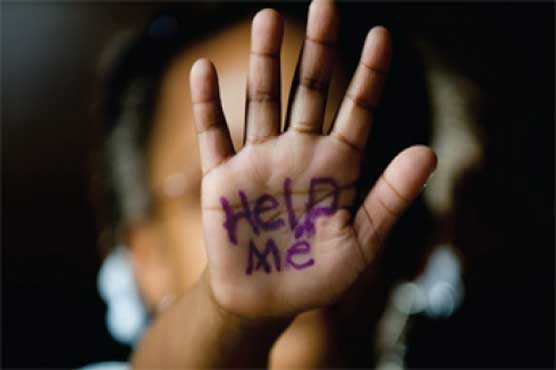
by admin | Oct 25, 2022 | Uncategorized
Mutilated bodies of children found on garbage heaps, girls forced to return sexual favors at educational institutes and workplaces and women consigned to the hell of forced marriages; all of us come across such incidents in routine now. These are just a few forms of the menace, we call sexual terrorism that is widely engulfing our society and as a result, our women and children are living in deep disarray.
Sexual violence manifests itself in a number of different forms with the most commonly recognized form being rape which consists of a wide variety of acts ranging from child sexual abuse, incest, exhibitionism, voyeurism, obscene phone calls, fondling, sexual harassment, ridiculing a woman to try to limit her sexuality, controlling her reproductive choices, withholding sexual activity in an attempt to punish or hurt her, and treating women as immoral or sinful for expressing sexual needs or desires.
The other soft targets of sexual terrorists are children. According to a report, published by a social sector organization, around 11 cases of child abuse are reported each day in Pakistan. Most of the victims lose their lives during or after the act while the survivors live through awful physical and psychological traumas. The dilemma is that we are gradually becoming dumb or used to such acts. A sudden hype is witnessed at the end of human right groups, media, public and the government when a sexual abuse incident comes to spotlight and then the dust is settled.
Pakistan’s social fabric is based on the teachings of Islam which strictly prohibits any sort of violence, be it physical, sexual or psychological. Moreover, number of laws have been passed during last decade to protect women and children from violence and ensure gender justice in the society. Despite this, we see sexual crimes rising every day.
Sexual terrorism is spreading tentacles not only for the reasons that our legal system is fragile somehow and our society is largely driven by misogynist and patriarchal mindset but there are a number of other contributing factors that we hardly pay attention to.
Lack of education is the root cause whether we admit it or not. Despite some drastic advancements in informational technology and media and different governments’ endeavors to perk up literacy rate during last decade, a huge portion of the society goes on being uneducated and uncultured. When these feral mind are exposed to national and international entertainment media and internet pornography, they are naturally prone to experience sensual behavior which eventually leads to frustration and when this frustration is not channelized, it gives birth to different sexual crimes.
This is turning into a grave mental health issue. This horde of feral and frustrated minds are not only committing sexual crimes, this is hindering the society’s overall well-being and development. So, when we talk about policy making and legal reforms to counter sexual terrorism, we must focus on mental health aspect too.
Another dilemma of our society is communication gap between parents and children and teachers and children. It is one of the prime responsibility of parents and teachers to guide children and adolescents about their sexual health and behavior and train them to deal with odd and unwanted situations confidently. Following the Zainab rape and murder case earlier this year, a campaign of teaching children to differentiate between good touch and bad touch was initiated. This is a good step which must be encouraged and supported.
Also Read:Five Reasons Why Child Abuse Is Rampant In
The perpetrators of sexual crimes prey on the atmosphere of silence and helplessness by the victims. In a society like ours, where the interpretations of religion and culture have been historically male-dominated, it is still considered a serious taboo to openly talk about sexual violence and crimes. Thus, a large number of the victims remain tight-lipped for fear of being further morally oppressed and intimidated upon reporting.
To counter and control this endemic, we need to empower our women and give them voice. We see women in the developed world are breaking silence through the #MeToo movement. Our women must join hands too to ensure a violence free society. Media, clergy, administration and civil society need to launch a joint effort to spread awareness and education about combating sexual terrorism and capacitate women and children, through moral and physical trainings, to actively resist and report sexual crimes so that the perpetrators are punished and victims are given relief on time.
The writer is CEO White Ribbon Pakistan and is a development and communications professional with extensive experience in Health Awareness, Behaviour Transformation Communications and Strategic Public Relations. He tweets at @MrOmerAftab.

by admin | Oct 25, 2022 | Uncategorized
Our society is no easy place for a woman to survive in. Problems surrounding her existence are so deeply rooted in tradition and culture that in this era of technology we are still fighting to ensure provision of basic rights. A woman’s right to exist itself is still under question through socially established cruelty such as honour killing sanctioned by tribal elders themselves. Crimes of sexual nature are as common as harassment at workplaces and marketplaces. To add to this is the burden to fulfill social expectations. After a certain age, a girl is considered too old to get married, delay in pregnancy is assumed to be the fault of the woman, birth of a daughter ends in a guilt-trip for life.
As the society evolves and we hope for education to change the mindsets of people another persuasive tool that we look to for a positive change is the media. Media has established itself as a significant agent of social change. It can influence opinion of the masses, and slowly and steadily this can end in a behavioural change in the audiences. This is why we look to media to not only provide unbiased and objective media coverage but, further, we need it to be more proactive in its affirmative coverage that ascertains respect of and for women. This fight for the dignity and integrity requires a far more responsible role to be played by all forms of media: print, electronic, social.
The dearth of gender-sensitive media policies in Pakistan can be felt in daily reporting and news coverage. The considerable lack of empathy is manifested especially in crime stories that aim for catchy headlines that sensationalise the role of a woman. A murder over the hand of a woman is the woman’s fault, suicide of a ‘jilted’ lover is the woman’s fault, and at times, kidnappings are undersold as nothing more than possible cases of elopement.
The tone such crime stories set is demeaning, with an underline accusation being pointed to the woman. The reporting on television follows a similar trend. The language used in tickers is misleading, and the pet adjectives in a story used for a woman draw a bleak picture for women of the society. Honour killing stories deserve to be dealt with in a sombre manner where a very clear picture is presented. Honour killing is murder, pure and simple. In reporting that message is often missed and one is left wondering who the victim in this story is when the victim is portrayed as the instigator to start with. Any woman killed in the name of honour or any woman dishonoured in the name of rape did not deserve it or ask for it, no matter how the story reads. It is not a reporter’s job to give a judgment call when covering a news story; the narrative should be based on facts and not analysis drenched in stereotypes.
Flip the coin and on the other side you see the same in entertainment. They do it on glossy paper and with a splash of glamour but their portrayal is a far cry from the reality of our society. Splashed across cover pages are women beautiful and talented, no doubt, but they are setting standards not every woman can achieve. Size zero and flawless, is that what a woman is only? In objectifying her, she is being reduced to just a pretty face, when she is so much more. The surge in soap operas has further blurred this portrayal. Women are shown centering their lives on a man; the plot has them waiting for a man, mourning for a man or fighting for a man. The female characters can broadly be characterised as: the conniving ‘bad’ woman who speaks her mind or the subdued ‘good’ woman who does as asked.
Where in the media is the woman we see in our everyday lives; the woman trying so hard to create space for herself, the woman struggling to empower herself, the woman fighting to dream big and achieve bigger?
The writer is CEO White Ribbon Pakistan and is a development and communications professional with extensive experience in Health Awareness, Behaviour Transformation Communications and Strategic Public Relations. He tweets at @MrOmerAftab.
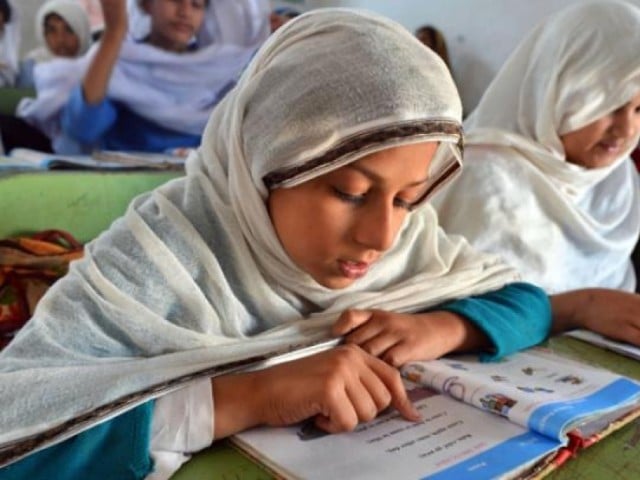
by admin | Oct 25, 2022 | Uncategorized
In Pakistan we assume a woman is meant to stay at home, do chores, marry, bear children, and look after family and house. She is judged based on how well she is doing by these criteria. And the man is the bread-winner. He works, and he earns; his performance evaluation is based on ‘how well he provides for his family’.
How do we decide who does what? Or the assumption suffices that traditional gender roles that have been ascribed over years of practice stand true? This gender stereotyping is reinforced by the repetitive enforcement by content on media as well as content we are exposed to during our academic years. This brings us to curriculum as a factor contributing to the problem.
Curriculum is critical. What is being taught is more important than where it is being taught – in a slum school being run under an overhead bridge or a big school in a posh locality. It is the curriculum that defines what your child is learning and what will he ‘know’ when he is ready to graduate from school. Curriculum theorists argue that one critical question needs to be answered: what should all students know by the time they leave school?
Education is not a mere process of socialisation, but is in charge for transformation as well. Then why is this agent of change failing to transform the traditional gender roles that dominate the society even today?
Curriculum entails textbooks that are chosen to be taught in schools as well. The content including the illustrations on these books leave a lasting image on a child’s mind. On an average, a child is in custody of a textbook of any subject for a long period spanning up to a year. This repetitive exposure to it has an impact on the child, so much so that even concepts of gender roles are further reinforced. What he sees in the society is further validated by the curriculum.
Males are far more noticeable than females in most textbooks. This is mainly because they are frequently the main characters, in story titles as well as in illustrations. Additionally, the visibility of this gender in the text takes a major jump due to the language used, especially the pronouns. A review of the curriculum will reflect how the male gender is used to portray ‘mankind’. ‘Man’ is commonly used to refer to all human beings.
Curriculum needs to encourage gender-neutral language. I struggle with gender-neutral language myself because I was taught to use man as a general reference. However, it is a habit that we need to shake ourselves loose of.
Furthermore, curriculum needs to be progressive where it does not instill in its students the belief that both males and females have mutually exclusive characteristics. Portrayal of a female as weak, passive, and docile character and man as strong and active, just further encourages the traditional narrative.
The depiction of these characteristics is further evident in the text referring to occupational roles. It is rarely ever that the females are shown in occupations and in ranks higher than the males. The man is typically shown as the ‘healing’ doctor in the book and the woman as the ‘caring’ nurse. The same is true for family roles. The domestic tasks of cooking, cleaning, sewing and washing are for the females to do, and the gardening, repairing is for the males. A ‘good’ or a ‘bad’ person is also identified by how they fare against their expected attributes and how well they perform the ascribed tasks. For example, a ‘good’ woman is one who keeps her house clean, is a great cook, and knows how to please the man of the house. And how many women in leadership roles and as heroic characters are taught in our books as compared to men in similar roles?
The construct of the curriculum being taught in our schools is gender-specific, and children exposed to this gender apartheid reinforce the already existing patriarchal society.
The writer is CEO White Ribbon Pakistan and is a development and communications professional with extensive experience in Health Awareness, Behaviour Transformation Communications and Strategic Public Relations. He tweets at @MrOmerAftab.
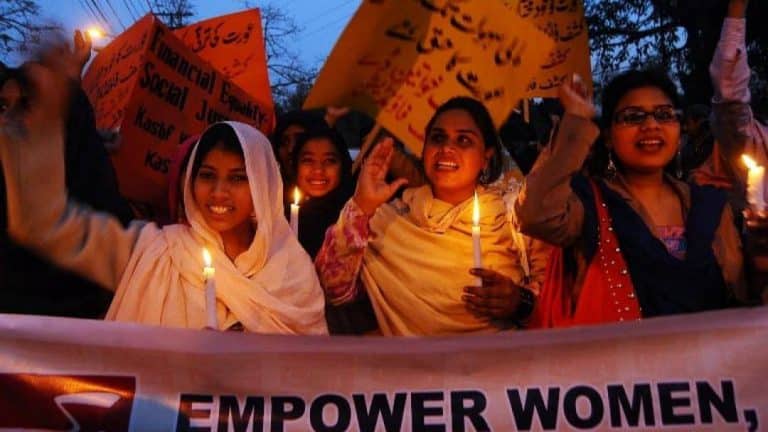
by admin | Oct 25, 2022 | Uncategorized
The conspiracy theorists in Pakistan have a treasure chest full of interesting notions, most of which take every political twist and every social revolution and tie its knot to the ‘western agenda’. The subject of women rights is no different. The subject is likely to be considered a threat to Islamic values and a propagation of a western agenda, and you will be pinned as an agent of the west.
Why is it so? Why is talking about women rights considered a western agenda? Does the east not believe in giving women their due place? Is the ‘mashraqi tehzeeb’ only kind to the men? Sadly, in our society that does hold true. Contradictions are easy to spot from the very early beginning; birth of a girl child is proof of that. The consolations follow soon after, while birth of a boy is met with joy everywhere. To the extent that how the family reacts to the mother also is affected drastically. It is common practice that mothers giving birth to daughters are shunned by their own family, and in some cases even sent packing back to their parent’s house.
The discrimination continues into the formative years where how the boy and girl are raised is not the same; the opportunities and responsibilities both are given are not the same. It is instinctive for most families to compromise on the girl’s nutritional needs in favour of the boy sibling. The same holds true for education.
Encouraging families to educate their girls for their own economic empowerment and the society’s serves the west, how?
It is a norm to marry off girls at a young age, in some areas, they are considered ready for marriage even at the ages of 9 or 10. Marriage in itself is a subject that completely overlooks the right of a woman to decide or choose for herself. Is willful consent of a girl being wed not an integral part of the nikah? The viles prevalent in our society in the name of marriage question not only the integrity of the girl but also her entity as a human. Dowry is one such evil. What gifts the girl comes bearing for the family and the husband and herself, in many cases, determines her standing amongst the in-laws. There are many girls, especially in the lower economic strata of the society, who have had their hand refused in marriage because their families could not promise much in dowry.
Talking about this wide-spread evil is against our values, how?
The crimes against women are a courtesy extended by their own blood relatives as well as by the society at large. Cases of domestic violence were not even considered worthy of a discussion a few years back, even now it is a problem that is dismissed with a shrug by the family of both the victim and offender.
How does it propagate the western agenda if we raise our voices to say: “Please don’t hit women! Please don’t throw acid on them! Please don’t abuse them.” How is it disrespect to our values if we speak out against the sexual harassment and abuse women are subjected to at workplaces and in marketplaces, and even in the sanctity of their own homes?
Are we trying to drown these outcries for justice with blame slogans of ‘western agenda’? Hiding our own shortcomings and weaknesses, or maybe we have nothing better to do like the boy who cried wolf?
Inheritance laws taught by Islam are clear on division of assets, wherein women of the family in the role of a mother, daughter, and wife are allowed their share. Then why is there the practice of marrying women to the Holy Book so the land they are to inherit stays within the family? The Holy Book she is being married to does not endorse this tradition.
The longstanding tradition of suppressing women is allowed to continue in the name of honour, religion, culture, tradition and norm. Everyone is happy to stand by and watch.
But talking about it is a ‘western agenda’.
The writer is CEO White Ribbon Pakistan and is a development and communications professional with extensive experience in Health Awareness, Behaviour Transformation Communications and Strategic Public Relations. He tweets at @MrOmerAftab.
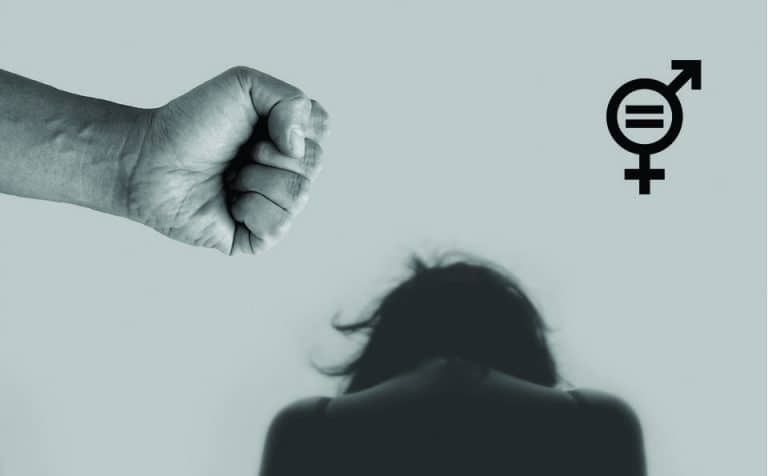
by admin | Oct 25, 2022 | Uncategorized
Violence against women (VAW) is a result of many factors but inequality can be considered as the root cause of this brutal act. We are talking about gender inequality which means men and women are not considered equal and the differences arise from distinctions in experience, exposure, and cultural norms etc. From the feminist perspective, some of the differences are empirically grounded but others are socially constructed by those who wanted to hold the power and control the whole system. Feminists believe that male supremacy and dominance is an illusion created by the sexist minds of male anthropologists.
Abusing women physically or psychologically was not the reason to create gender inequality but it becomes the main cause of gender-based violence.
Violence against women is not limited to Pakistan or underdeveloped countries, it is a global phenomenon having no boundaries of age, education, socioeconomic status and geography. According to the World Health Organization, about 35 per cent of women worldwide have faced physical and/or sexual violence in their lives either from intimate partner or non-partner.
Discrimination and social norms undermine women to get education, income and independence. The dependency of a woman on man is the core reason that she is considered unequal to man and treated like a slave or commodity.
It is considered that the lack of women’s empowerment is a critical form of inequality. Woman empowerment is one the solution to VAW. Empowering them by providing equal opportunities and access to education, decent jobs, health care, knowledge, awareness, representation in economic and political decision-making process and support is very crucial. Because it has been proved by researches that women who hold the degree, job (Economic independency) and awareness are less likely to be hurt by their spouse and even from other men. Gender equality is a necessity for a peaceful, prosperous and sustainable world.
Supporting those girls who encounter violence is vital by making sure that they are getting justice, protection, shelter, counselling, treatment and whatever they need to get out of the trauma and live a better life.
In the past few decades, for women empowerment, the enormous Progress has been made on many important fronts. The situation is far better than the past but there is still much work to be done in this field. In this era even having a major share in global work women face disadvantages in both paid and unpaid jobs. Even after getting the higher education they don’t have a high-rank job. They are not excelling in the business a few of them get a chance to become a senior politician and hold judicial positions.
To put an end to this curse we must focus on changing discriminatory social norms, closing gender gaps on all levels (educational, economic, social). The first and most important step is to collect data. Then we need more energy, struggle and determination to reduce the violence that cut deep into our society so that it is not continued to the next generations.
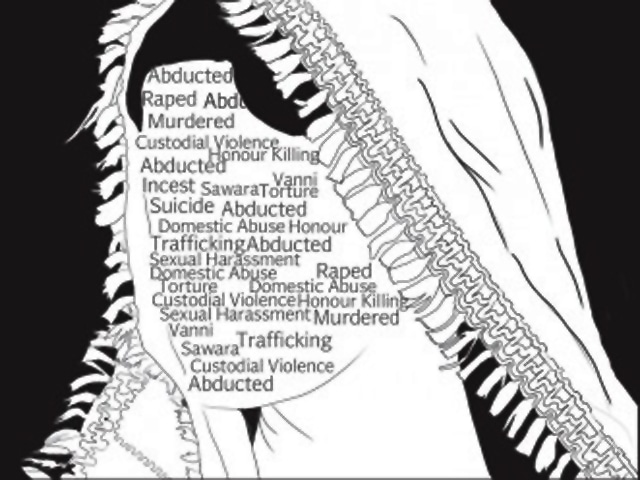
by admin | Oct 25, 2022 | Uncategorized
No matter how much work is done for gender equality, women are still encountering so many problems including violence. In urban areas of Pakistan, the situation is better than the past but for the rural areas, we cannot say the same. Pakistani women have proved that she is capable of doing anything assigned to them but most women do not even get a chance to prove their worth.
The society has made them believe that they are inferior, less important than boys and have no capacity to do many tasks. Most of the women do not know that they have basic rights and they are an integral part of the society. The difference in gender does not lessen their importance and human rights. They, their decisions and their privacy must be respected and they can do whatever they want to do.
Now the question arises that how can we empower women so that we can put a full stop to gender inequality and violence against women.
The first step is to change the psyche of Pakistani women and convey them they should not undermine themselves. Empowerment is about creating an environment where a woman is free to choose what she wants to do, she knows her rights and knows how to get them, she can comment and suggest about economic, political and cultural issues. Providing them equal opportunities like boys to participate in any segment of life as per their choice. Making a woman socially, politically and economically strong is a sustainable solution to ending gender violence and inequality.
Following are some empowerment techniques that can build self-esteem in women and girls.
- Providing education to women is the best gift to empower them. Educated women can understand their rights, psychology of men, handle people, perform a job by acquiring skills and rely on themselves. Ultimately it broadens their vision and teaches them how to tackle the problems and live a more productive life.
- Awareness regarding their health, reproductive system, childbearing, breastfeeding and hygiene and makes them conscious. It raises their life expectancy and enhances the ability to decide what is right for them and what should they do.
- Economic independence can reduce the level of gender-based violence. Pushing women to acquire skills and contribute to their house, society, country and the world. Teach them to play an active role in their society. Women’s economic empowerment includes women’s ability to participate equally in existing markets; their access to and control over productive resources, access to decent work, control over their own time, lives and bodies; and increased voice, agency and meaningful participation in economic decision-making at all levels from the household to international institutions. Chances are very high that these skilled women will do further work to empower other women. Economic independence develops confidence and self-worth into them which gives them the ability to demand respect and peace in their relationships.
- Awareness about all the laws preventing harmful activities against women and the procedure to access the law is the most important task in empowering women. Government and civil society must show strong commitment, and accelerate actions to increase women’s access to justice that advances women’s equal rights, opportunity and participation. Rule of law helps to minimize violence against women so we must endorse zero tolerance policy about this issue.
- Making sure their participation in the decision-making process at all levels such as household, human development, political, education, job, workplace, pursuing personal interest, cultural, marriage, childbearing and economic, trade and development policies. Empowerment of women will improve their status generally and enable them to actively and effectively participate in key decision-making processes. Increasing their ability to make decisions will boost their confidence. Building social networks and making them socially active enhance their ability to decide rightfully.
- Encouraging them to participate in politics and leadership roles. It does not only raise their confidence but also they can empower other women by inspiring and working on the policies and legislation from the top level.
White Ribbon Pakistan is promoting gender equality, women’s empowerment and their enjoyment of human rights. We believe in making the home and public spaces safer for women and girls, ensuring women’s economic autonomy and security and increasing women’s participation and decision-making powers—in the home, as well as in public life and politics.
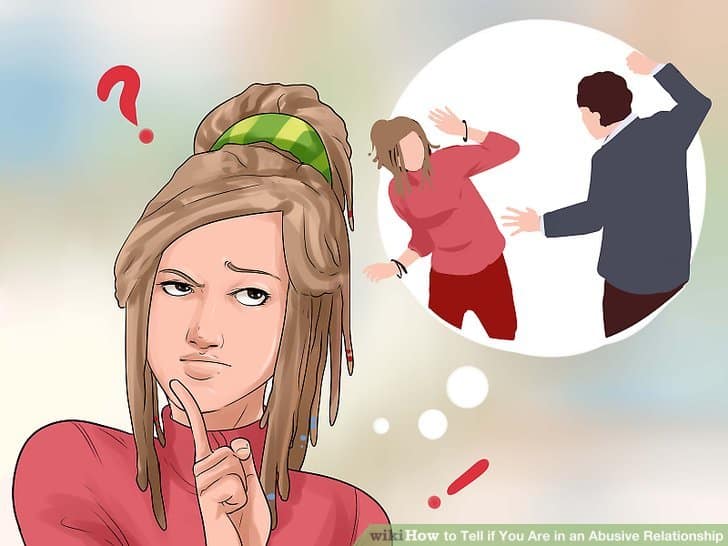
by admin | Oct 25, 2022 | Uncategorized
When domestic abuse is discussed a thought came across the mind of people that why these women do not leave their abusive husbands?
Domestic violence is repeating and unending cycle in which you can count physical, psychological, sexual, economic and emotional abuse. If Abuser controls everything and does not give a woman access to health, education, resources and even her parents, it is also included in violence.
Most women never left their abusive husbands, some left their husband after a long time of suffering because of multiple reasons. Many of them go to their parents’ house but just to go back, time and again.
The reasons include the following:
- Believing or hoping that the man will change
- Economic dependency
- For the sake of children (Children and Single Parenthood)
- Poor support system (Lack of intervention) and Social pressure
- Norms and myths, Personal guilt and the concept of personal failure
- Negligence of law enforcement agencies
- Fear of what the partner will do
When domestic violence starts at the beginning of relationship women tell their hearts that the abuser will change with time and they pass a long time hoping the same.
In Pakistani culture, a woman remains economically depended on all her life. This is a common expression that no one except husband will bear the expenditures after marriage. Brothers and family of a woman do not support her normally. After the marriage and kids, the woman starts thinking of her children instead of herself. This is our traditional belief that for a better upbringing a child should know and have both mother and father.
In Pakistan, we have a saying that “Once a woman leaves her mother’s house as a bride, she can only return in a coffin.” After the marriage, no one helps and support the woman so that she can overcome the abusive relationship. Even she always get suggestions to bear the pain as it is considered a tradition. Most of the families consider that if their daughter gets a divorce they will lose their dignity and respect in the society so they choose pain, trauma, abortions, miscarriages, sufferings and even death over their so-called respect.
People continue to believe in pseudo-self-created values but don’t respect woman’s rights as an equal human being even in the 21st century. Norms and myths hold women not to speak up. It is usual, it happens in homes, we fight most with the people whom we love, if a husband stops beating his wife it is considered that he has indulged in some other woman. These norms contribute more to increase domestic violence. It is also considered that women are weak they are nothing without their husband. Now millions of women have no self-esteem and they also consider them wrong and they accept all the pain as their fate.
If a woman takes some courage and gains the support of family members then our systems fail her. She fears to go to the police because they encourage both parties to compromise. Lack of interest, pressure from the man side and negligence of police leads her to step back. The same case is with our judicial system people avoid to take their cases to the court because of the inefficient system. Many of them fear that the person abusing them will harm them after coming back from jail because the state is not doing something tangible
Pakistan needs to adopt an approach of domestic violence cases being registered by the state rather than the family (Sindh police took this surprisingly smart step in a recent case) so the victims aren’t inevitably ‘pardoned’ every time in the name of so-called honour.
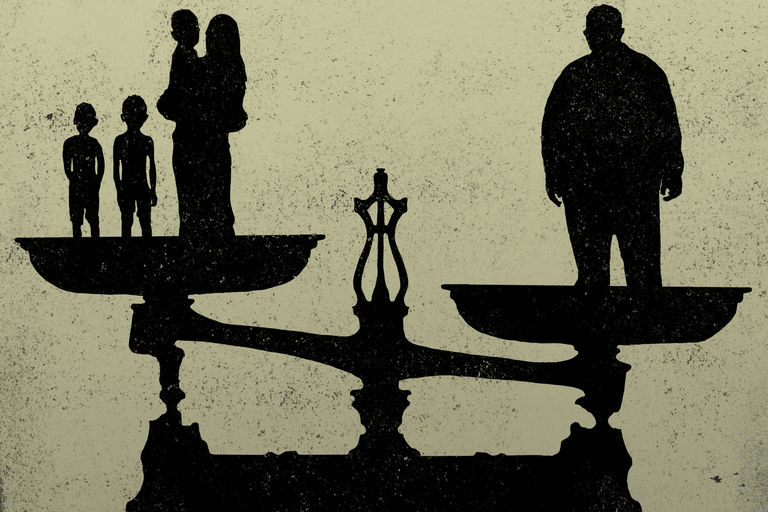
by admin | Oct 25, 2022 | Uncategorized
Patriarchy is a system of social organization that institutionalizes male power over women and puts male interests and values at the center of social life. Sylvia Walby explains patriarchy as “a system of interrelated social structures which allow men to exploit women.” This definition recognizes patriarchy as being institutionalized subordination and exploitation of women.
The supporters of patriarchal society justify patriarchy by attributing natural biological differences between men and women. They also focus on the influences that hormones have over biological systems. The ‘male hormone’ testosterone is responsible for masculinizing a man, whereas ‘female hormone’ estrogen feminizes a woman. In short, women are considered inferior to men intellectually and physically. According to this social system women role in society is to reproduce and serve men in the household. On the basis of recent studies and researches, it can be rightly said that there is no correlation between skull capacity and brain weight and intellectual power, yet there is still a constant struggle of gender bias in science.
Some theories also discuss patriarchy through a psychological perspective based on gender differences in psychology which are the differences in mental functions and behaviors of the sexes. Such differences are found in a variety of fields, such as mental health, cognitive abilities, personality and tendency towards aggression. Males on average are more assertive and have higher self-esteem. Females were on average higher than males in extraversion, anxiety, empathizing skills, trust, and, especially, tender-mindedness. Women also reported a more intense and more frequent experience of affect, joy, and love but also experienced more embarrassment, guilt, shame, sadness, anger, fear, and distress
Patriarchy is a multilayered, multifaceted social structure that extends across all levels such as personal, interpersonal, social, institutional, in family, in community and in government etc. The pattern of violence within personal relationships and communities grew over time because patriarchy has developed and changed over time. Virtually in practice, all societies are more or less patriarchal in nature, whereas there is no such evidence found in constitutions and laws governing such societies. The factor of patriarchy has itself integrated with the social, moral, legal, political, religious and economic organization of various cultures.
The process by which children acquire the values, motives, and behaviors viewed as appropriate for males and females within a culture is called gender typing. Children develop gender-based beliefs, largely based on gender stereotypes; which reflected in gender roles later. Children adopt a gender identity early in life and develop gender-role preferences as well.
Patriarchy has an immense impact on the lives of women in every field of life. For instance, in state/government women have less formal power and representation. In the household, they are considered a machine who produce the children and raise them. Moreover, they are more likely to being abused physically, psychologically, emotionally, socially and economically. They have fewer opportunities in professional life and also paid less. They are treated negatively in terms of sexuality. They are more misrepresented and used as a commodity in media and popular culture.
Patriarchy is a social system so, all men do not participate or experience patriarchy in the same way. Patriarchy does not necessarily mean that every man has control over every woman in every context. Various groups, most notably the feminist movement, have led efforts to change aspects of patriarchy that they believe are oppressive or inaccurate.
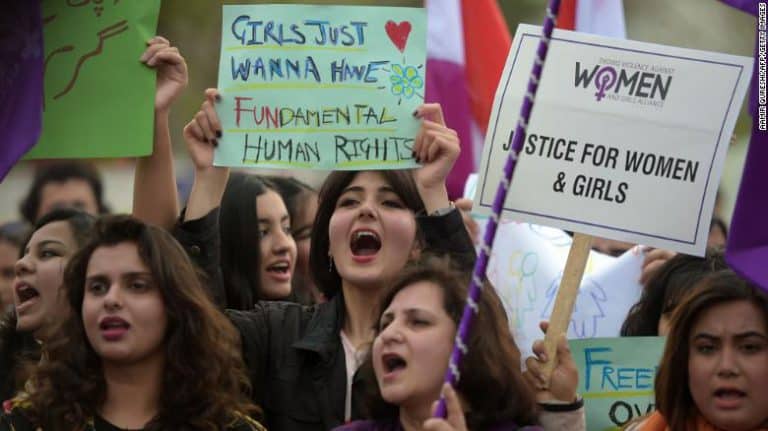
by admin | Oct 25, 2022 | Uncategorized
From mainstream media to entertainment, portrayal of women as ‘damsels in distress’ is a phenomenon all too common
Aroosa Shaukat
But the battle is far from over. From mainstream news media to entertainment industry, portrayal of women as the usual ‘damsel in distress’ is a phenomenon all too common, says White Ribbon CEO, Omer Aftab. “There has been so much reinforcement of stereotypes altering societal attitudes for so long that it almost always puts the blame on women, even when they are the victims,” he says. A campaigner for women’s rights, Aftab says fighting patriarchy is all the more challenging since it exists in varying forms in different strata of the society.
For rights campaigners, sensitisation of mainstream media has remained a challenge for far too long, says Aftab. Citing instances of news coverage of rape and abuse forcing victims to flee their neighbourhoods and even cities, Aftab says, at times, news coverage has amounted to nothing short of a ‘second assault’ on abuse survivors. And it doesn’t end there. With crime re-enactment shows taking much of primetime spots on news channels, the focus has been on sensationalising crime. “Somewhere in that process, the plot is lost. There is indirect condemnation of the victim instead of the perpetrator,” he says.
In 2013, a media code of ethics was developed by White Ribbon following focused group discussions with journalists across the country, which was endorsed by over 150 journalists at its launch the same year. With vows made to re-evaluate news reporting, rights campaigners felt mainstream journalists made an effort to act responsibly. Aftab notes that in the past five years there has been a noticeable change in how media reports such stories, though the same remains questionable in some quarters. Another problem is the tone set in some talk shows, especially by hosts. “What needs to be understood is the influence these individuals carry. We also need to look at the mindset of the people in media itself, and how that shapes public opinion and attitude,” he says.
Mazaaq Raat, a television talk show aired on a private news channel, which featured Mohsin Abbas, recently started issuing disclaimers following the domestic abuse allegations against the actor-singer. The disclaimer stated that the channel has distanced itself from the actor in the wake of the recent allegations since some episodes were recorded prior to the case, they have content that features Abbas. The channel has said that until the actor clears his name, he will not be part of future episodes of the show. The disclaimer was run recently before and during the airing of the show.
Aftab says some major cases of violence were brought to light after these were taken up on social media. Allegations against Abbas were also initially taken up on social media following her wife’s posts on Facebook and Twitter. “Voices that are being raised through social media are difficult to silence,” says Aftab. However, for campaigners the difficulty is in gauging how media weighs out issues of abuse and social injustice against other mainstream stories. For rights activists, convincing mainstream media to continue to focus on these issues remains difficult. “Unless there is an incident, no one is willing to take up the issue till there is a pressure from social media. Wait for another ten days and see how many in the news media continue to talk about abuse or violence against women.”
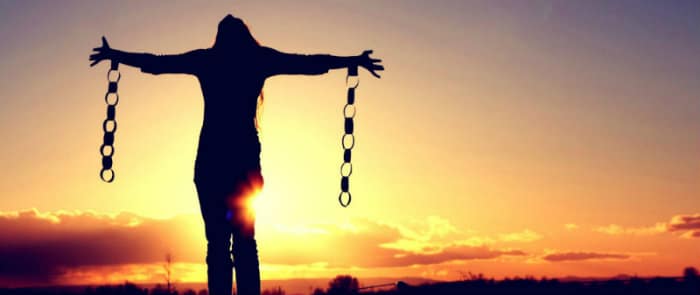
by admin | Oct 25, 2022 | Uncategorized
While fighting for the freedom of Pakistan Fatima Jinnah and Begum Rana Liaquat Ali Khan did not know that in the country they are struggling for women will not be free in reality. Pakistan came into existence in the name of Islam and founded by a Muhammad Ali Jinnah who had pluralistic values. He formed Pakistan so that every human being can live freely but still after passing 72 years vulnerable members of our society especially women are not enjoying the True liberty.
People need to understand that women have been created free just like men and they have the right to live without any intrusion of others which is natural and legitimate desire. Because of some cultural values and norms, women are being treated inhumanly in Pakistan.
This year Pakistan will celebrate 73rd of its independence. The question arises that, are women in Pakistan really free? Do women enjoy the same freedom in all aspects of life as compared to men in Pakistan? We realize that In 72 years we could not apply basic human competency and decency completely. We could not eradicate domestic violence, physical, psychological, sexual, economic and emotional abuse, acid attacks, molestation, harassment, child and forced marriages, forced prostitution, honor killings and modern slavery of women. Most of our women do not have access to health, education, and other resources. So the answer is crystal clear “Not”.
According to the Global Slavery Index, 16.8 persons per 1000 population estimated 3.19 million live in modern slavery and Pakistan Ranks 7th out of 10 countries that comprise 60 percent of modern slaves.
Many NGOs like White Ribbon Pakistan have been working to eradicate inequality and injustice against women and create awareness. Many laws have been made because of the efforts of human rights activists and NGOs but lack of implementation of these laws create chaos in society. Government of Pakistan seems serious to deal with the situation and have adopted a number of key international commitments to remove gender inequality and deliver women’s human rights but the feudal mentality and the system of patriarchy are not letting the nation grow positively.
People of Pakistan who believe in gender equality remain mute and sedated. Our moral and social growth is suppressed. So, we have to grow up morally, socially and politically to end the violence against women and eliminate the inequality among genders. We need to resist the dogma and declare ourselves ready for a different world in which we are against the awful things done in the name of honor. We need to work towards acceptance across genders. We need to embrace education so that we can end our collective abuse.
Independence Day is celebrated with extraordinary enthusiasm at the public and private level in Pakistan. We must deal with the issues of Pakistan with the same eagerness and must not remain silent especially when we need to respond urgently as a society. We hope that one day the whole nation regardless of gender, religion, caste and creed will celebrate Independence Day in Pakistan.










